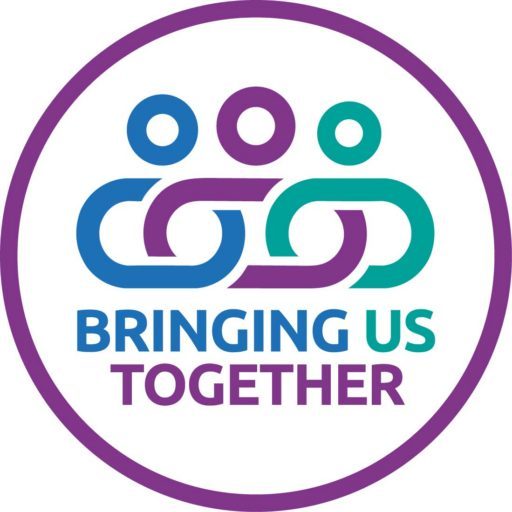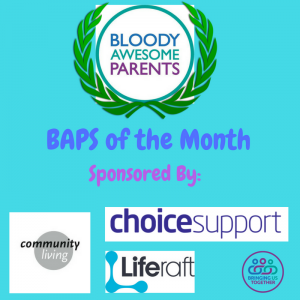What’s the worst that can happen?
Today, we are sharing a really thought provoking guest post from a parent. This post shares how the worst that can happen, did happen to one young man and his family.
“I used to be an SEN Practitioner in a federation of mainstream primary schools in inner London. With a decade’s experience supporting children with SEN, I became the Lead Practitioner for autism, managing a support team that included SEN practitioner colleagues, teaching assistants, SENCOs and Deputy Heads. The team was making progress. We were not only changing hearts and minds (such as providing good quality training for Newly Qualified Teachers and on-the-job support for teaching assistants), but also providing crisis prevention support to avoid school exclusions.
As the National Autistic’s Society’s website tells us, ‘Behaviour has a function’ and we applied this principle every day. Where a child displayed behaviour that challenged, we looked at what that behaviour was communicating, made reasonable adjustments and taught the child the skills they needed to help them navigate the world with less anxiety and / or confusion. We didn’t always get it right, but we reflected and problem-solved, and tried again.
I loved my job. But this year, I resigned.
 It wasn’t because of the systemic challenges to meaningful inclusion, such as Ofsted prizing attainment and attendance over inclusion. It wasn’t because of the trenchant funding cuts to education that saw SEN budgets felled by devastating blow after blow.
It wasn’t because of the systemic challenges to meaningful inclusion, such as Ofsted prizing attainment and attendance over inclusion. It wasn’t because of the trenchant funding cuts to education that saw SEN budgets felled by devastating blow after blow.
It was because of something much closer to home. It was because I saw up close and personal the worst that can happen when education, social care and health services fail a child with autism (and learning difficulties, and ADHD and OCD and a whole host of other labels).
You see this child reached crisis point because of ‘a failure in joint working between education, social care and health’. At crisis point, the child was taken to A & E where he was sectioned. He was then sent to an inpatient unit where he deteriorated catastrophically for sixteen months. He thought he was in prison.
I left my job because ‘that child’ was my child.
Some parents have said to me ‘Well I wouldn’t let that happen to my child.’ All I can say is that I trusted the professionals when they said the best thing for my son was inpatient ‘assessment, treatment and care’. Now I know better.
My son is not mentally ill – he has autism.
The underlying cause of his behaviour was anxiety and puberty.
In hospital, he was contained, face-down restrained, secluded and forcibly injected with anti-psychotic medication.
In the community, he has the right treatment (anti-anxiety oral medication), autism-specific care and a person-centred learning programme.
Now, he is safe, happy and learning. It’s not rocket science. And it’s cheaper than the hospital.
And as it happens, our son’s case isn’t isolated. There are far, far worse realities that other vulnerable young people with autism and / or learning difficulties have endured and for far longer. There are about 3,000 still living in inpatient units. And it is a national scandal that continues to be tolerated – even though the state wants ‘homes not hospitals’ for them.
I can’t go back to my job because I can’t see the day when I’m strong enough to witness another child reaching crisis point as the cuts to our local community services – to health, education and social care – continue unabated.
And to parents whose loved ones are at risk of admission to – or are in – inpatient hospitals, I would urge you to ask for an urgent Care and Treatment Review. You can find out more about them in our Survival Guide”

My pre-children years were spent in Editorial, first in books and then in journals. Then, when my son was diagnosed at a young age, volunteering in my local school became a career as a special educational needs practitioner. I became the Lead Practitioner for Autism across a Federation of mainstream primary schools, running its Autism Support Team. I was Secretary at my local NAS branch for many years and ran several local parent support groups.
When my son hit crisis point and was admitted to an acute treatment unit as an inpatient, I mounted a campaign for him to receive appropriate treatment and care in the community. Now, I am campaigning and working collaboratively with ‘Stronger Together’ families, NHS England, charities and other partner organisations to ensure that ‘Homes not Hospitals’ become a reality for all people with autism, learning difficulties or both.








This happened to my daughter. Neither of us has recovered. I too believed the professionals that she was having a schizophrenic breakdown. Nearly 30 years later she has been diagnsed autistic aged 44 after research and constant pushing from me. But is still on antipsychotic drugs and she is not the same person she was. Not as responsive, not as communicative… It has broken both our hearts into tiny pieces. The guilt and misery of being unable to care for her myself is something i live with and which ill never forgive myself for, for not realising and allowing what happened to happen. I too thought when my fathr died whn i was 4 that nothing could happen to me that hurt as much. I was so wrong. Hindsight obviously and i just did what i thought was bst at the time but still. Not as much info available in the early 90s as thwre is now but i really feel for the person who wrotebthis article.
Autism and learning disability with behaviour issues are now mental disorders under the Mental Health Act they were added in 2009.
But as you say they are not mental but behavioural issues but have now been made mental disorders.
In fact, any unmanageable behaviour, even as it usually is, resultant upon inadequate for max profit care will be dealt with as a mental disorder and medicated.
This is why 10 years ago there was a big push to look after the autistic’s mental health and even more labels were foisted upon them on a symptom basis ie ADH etc.
This allows encagement under section for ‘treatment’, which can last for years and is anything but, eventually for life on the grounds that all autistic cannot see into future and therefore appreciate risk so automatically fail the MCA capacity test.
From diagnosis to death, the ASD/LD is made the biggest cash and pharma cow possible, its as simple as that and all agencies, schools, experts feed into this.
£13,000 is paid per week by NHS to private mental like Cygnet / Acadia to tranquilise as they call it stabalise in a secure unit and they are building more with ever more public money despite austerity/crisis NHS Read my blog posts.